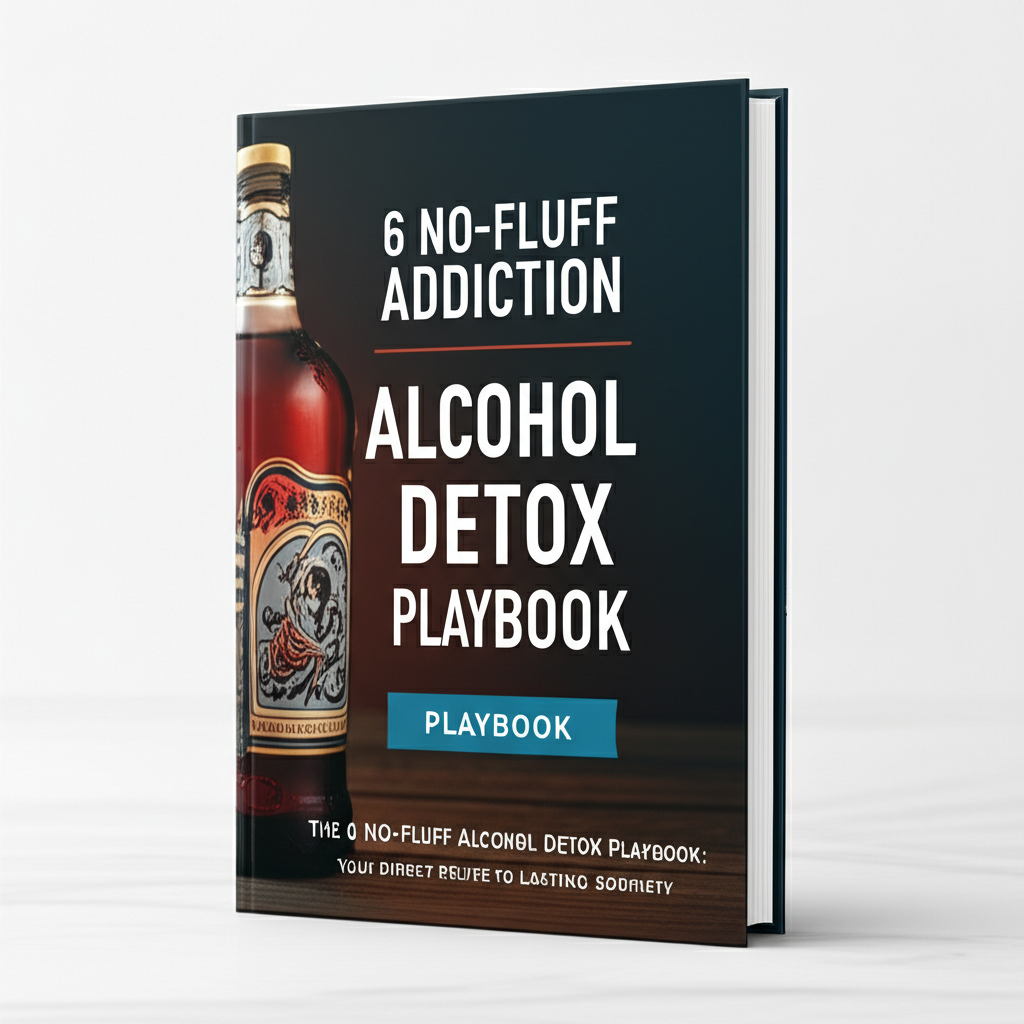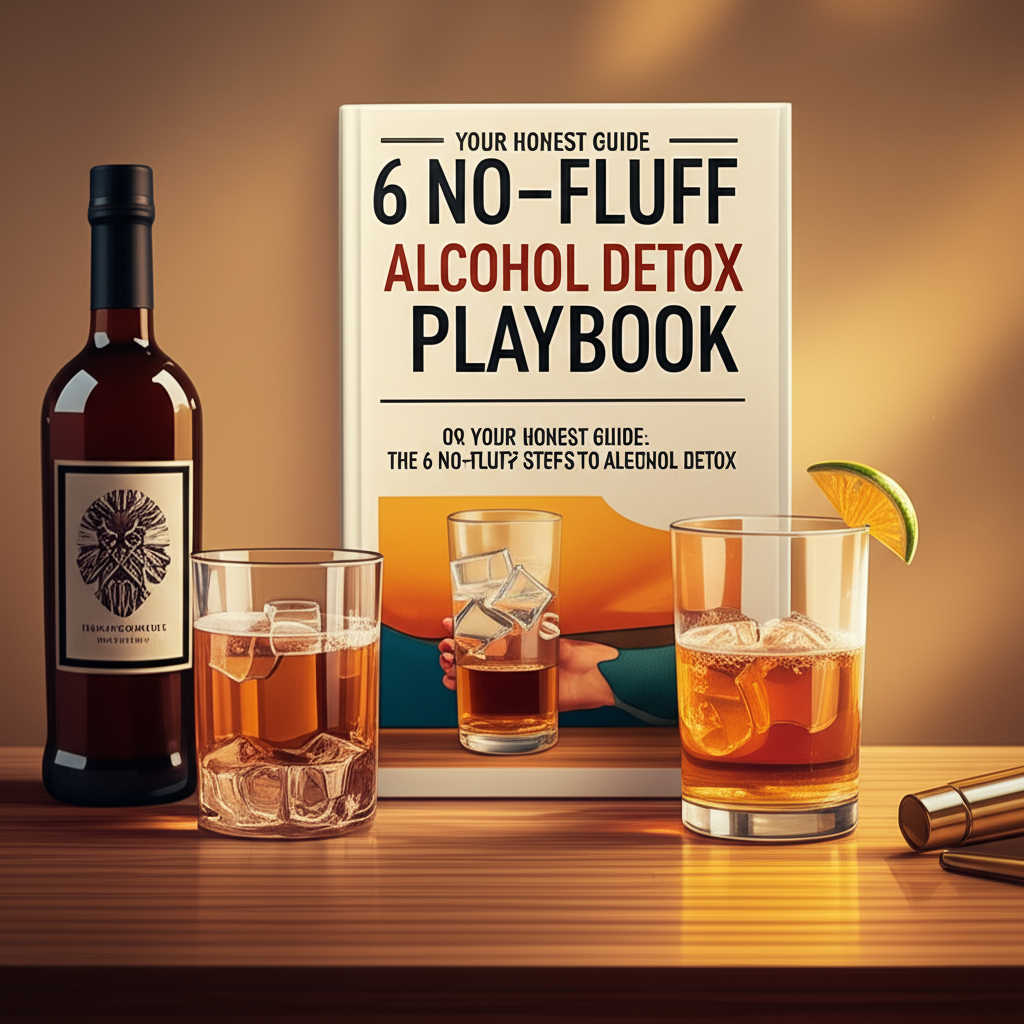The grip of alcohol addiction can feel insurmountable, a silent battle fought in the shadows of daily life. For millions worldwide, alcohol dependence isn’t just a bad habit; it’s a chronic, progressive disease that impacts every facet of existence – physical health, mental well-being, relationships, and career. Yet, amidst the despair, there is a beacon of hope: the decision to seek help. Taking the first step towards sobriety, particularly through detox, is a monumental act of courage and self-love.
But what exactly does alcohol detox entail? It’s often shrouded in misunderstanding, fear, and misinformation. Many attempt to go "cold turkey" at home, unaware of the severe, even life-threatening, risks involved. This article aims to demystify the process, providing a comprehensive, compassionate, and practical guide to the four ultimate pillars of a successful and safe alcohol detox. We’ll explore why professional intervention is paramount, how personalized care is crafted, the holistic support systems that aid recovery, and the crucial bridge from detox to sustained sobriety. If you or a loved one are contemplating this life-altering journey, prepare to embark on a path paved with clarity, support, and the promise of a healthier, alcohol-free future.
Understanding Alcohol Addiction and the Need for Detox
Before diving into the "how," it’s vital to grasp the "why." Alcohol addiction is a complex condition, not a moral failing. It fundamentally alters brain chemistry, creating a physical and psychological dependence that makes stopping incredibly difficult without professional help.
What is Alcohol Addiction?
Alcohol addiction, clinically known as Alcohol Use Disorder (AUD), is characterized by an impaired ability to stop or control alcohol use despite adverse social, occupational, or health consequences. It’s a progressive disease, meaning it tends to worsen over time if left untreated. The body adapts to the constant presence of alcohol, leading to tolerance and, eventually, physical dependence.
Why is Detox Necessary?
When someone physically dependent on alcohol suddenly stops or significantly reduces their intake, their central nervous system, which has adapted to being suppressed by alcohol, goes into overdrive. This rebound effect triggers a range of withdrawal symptoms that can be profoundly uncomfortable, distressing, and, critically, dangerous.
Attempting to detox from alcohol without medical supervision can lead to:
- Severe Physical Symptoms: Tremors, nausea, vomiting, sweating, headaches, insomnia, heart palpitations.
- Psychological Distress: Anxiety, agitation, paranoia, hallucinations, severe mood swings.
- Life-Threatening Complications:
- Seizures: Can occur within 6-48 hours of the last drink.
- Delirium Tremens (DTs): A severe form of alcohol withdrawal characterized by confusion, rapid heart rate, high blood pressure, fever, and profound hallucinations. DTs can be fatal without immediate medical intervention.
For these reasons, a medically supervised detox isn’t just recommended; it’s often a life-saving necessity.
The Four Pillars of a Successful Alcohol Detox
A truly effective alcohol detox goes far beyond simply stopping drinking. It’s a carefully orchestrated process built upon four fundamental pillars, each designed to ensure safety, comfort, and the best possible start to long-term recovery.
Pillar 1: Medical Supervision – The Non-Negotiable Foundation
The cornerstone of any safe and effective alcohol detox is comprehensive medical supervision. This isn’t just about monitoring; it’s about active intervention to manage symptoms and prevent complications.
Why Medical Detox is Paramount
- Safety First: As highlighted earlier, unsupervised withdrawal can be lethal. Medical professionals are equipped to recognize early warning signs of severe withdrawal symptoms like seizures or Delirium Tremens and intervene immediately.
- Symptom Management: Withdrawal is inherently uncomfortable. Medical teams use prescribed medications to alleviate the most distressing symptoms, making the process more tolerable and reducing the likelihood of relapse due to discomfort.
- Personalized Medication Protocols: There’s no one-size-fits-all approach. Doctors tailor medication regimens based on the individual’s history of alcohol use, overall health, and the severity of their withdrawal symptoms.
- Benzodiazepines (e.g., Ativan, Valium, Librium): These are the gold standard for managing alcohol withdrawal. They calm the central nervous system, reducing anxiety, tremors, and the risk of seizures and DTs. They are carefully tapered down over several days.
- Anti-Nausea Medications: To combat severe gastrointestinal distress.
- Nutritional Supplements: Especially B vitamins (like thiamine) to prevent neurological complications (e.g., Wernicke-Korsakoff syndrome) often associated with chronic alcohol use.
- 24/7 Monitoring: In a dedicated detox facility, healthcare professionals are available around the clock to monitor vital signs, assess symptom progression, and adjust treatment as needed.
What to Expect in a Medical Detox Facility
Upon arrival at a medical detox facility, you can expect a structured and supportive environment:
- Initial Assessment: A thorough medical and psychological evaluation to understand your health history, substance use patterns, and any co-occurring mental health conditions.
- Stabilization Phase: The first few days are focused on safely managing acute withdrawal symptoms with medication and constant monitoring.
- Supportive Care: Alongside medication, you’ll receive nutritional support, hydration, and a safe, calm environment conducive to healing.
- Transition Planning: As acute withdrawal subsides, the focus shifts to preparing you for the next stage of recovery, which is often residential treatment or intensive outpatient programs.
Pillar 2: Comprehensive Assessment and Personalized Planning
No two individuals battling alcohol addiction are exactly alike. Therefore, a successful detox isn’t a generic protocol but a highly personalized journey, meticulously planned after a thorough assessment.
Beyond the Addiction: A Holistic View
Effective treatment looks at the whole person, not just their alcohol use. This includes evaluating:
- Physical Health: Chronic alcohol abuse can wreak havoc on the body. Assessments check liver function, cardiovascular health, nutritional deficiencies, and any other medical conditions that might complicate detox or recovery.
- Mental Health (Co-occurring Disorders): A significant percentage of individuals with AUD also struggle with co-occurring mental health conditions like anxiety, depression, bipolar disorder, or PTSD. These conditions can both contribute to and be exacerbated by alcohol abuse. Identifying and planning for dual diagnosis treatment is crucial.
- Social Factors: Understanding your home environment, support system, potential triggers, and legal or financial stressors helps in crafting a sustainable recovery plan.
Crafting Your Unique Detox Roadmap
Based on the comprehensive assessment, a personalized detox plan is developed. This roadmap considers:
- Individualized Medication Regimen: As discussed, specific medications and dosages are tailored to your needs.
- Duration of Detox: While typically 3-10 days, this can vary depending on the severity of dependence and individual response.
- Therapeutic Interventions During Detox: While acute detox focuses on physical stabilization, many facilities integrate gentle, supportive counseling, educational sessions, or mindfulness practices to begin addressing psychological aspects and prepare for deeper therapy.
- Post-Detox Planning: This is arguably the most critical part of personalized planning. Detox is a vital first step, but it is not a cure. The plan will outline recommendations for ongoing treatment, whether it’s inpatient rehab, outpatient programs, or a combination of therapies and support groups.
Pillar 3: Holistic Support Systems – Nurturing Mind, Body, and Spirit
Detox isn’t solely about medication; it’s about beginning to heal the entire person. Holistic support systems address the physical, mental, and emotional toll of addiction, laying a stronger foundation for sustained recovery.
Nutritional Restoration
Chronic alcohol use severely depletes the body of essential nutrients, leading to malnutrition. During detox, a focus on proper nutrition is paramount:
- Hydration: Replenishing fluids is crucial, as dehydration is common.
- Vitamins and Minerals: Supplementation, especially with B vitamins (thiamine, folate), magnesium, and other micronutrients, is vital for restoring brain function and overall health.
- Balanced Diet: Meals rich in lean proteins, whole grains, fruits, and vegetables help stabilize blood sugar, improve mood, and support the body’s healing processes.
Therapeutic Interventions During Detox
While intense therapy typically begins after detox, many facilities introduce supportive interventions during this phase:
- Individual Counseling: Brief, supportive sessions with a therapist can help process initial emotions, anxieties, and motivations for sobriety.
- Group Therapy: Gentle, non-confrontational group sessions can provide a sense of community, reduce feelings of isolation, and introduce concepts of recovery.
- Mindfulness and Relaxation Techniques: Practices like guided meditation, deep breathing exercises, and gentle yoga (if medically cleared) can help manage anxiety, improve sleep, and foster a sense of calm.
- Educational Sessions: Learning about the disease of addiction, the detox process, and what to expect in recovery can empower individuals.
The Role of Peer and Family Support
While immediate family involvement might be limited during acute detox for safety and focus, the concept of support systems is critical:
- Peer Support: Knowing others have successfully navigated detox can be incredibly motivating.
- Family Education: Many programs offer resources for family members to understand addiction, learn healthy communication strategies, and prepare for their role in the loved one’s long-term recovery. This often begins towards the end of detox or in subsequent treatment stages.
Pillar 4: Bridging Detox to Long-Term Recovery – The Continuum of Care
Detox is the critical first step, clearing the physical effects of alcohol. However, it’s not a cure. The real work of recovery – addressing the underlying causes of addiction and building a sober life – begins after detox. This pillar emphasizes the importance of a seamless transition into ongoing treatment.
Why Detox is Just the First Step
Detox primarily addresses physical dependence. It helps you get sober, but it doesn’t teach you how to stay sober. Without further treatment, the risk of relapse remains extremely high. Long-term recovery requires:
- Addressing Root Causes: Exploring trauma, mental health issues, learned behaviors, and environmental triggers that contributed to addiction.
- Developing Coping Mechanisms: Learning healthy ways to manage stress, cravings, emotional challenges, and social pressures without resorting to alcohol.
- Building a Support Network: Connecting with others in recovery and establishing healthy relationships.
Essential Next Steps Post-Detox
The transition from detox to continued care is where the foundation for lasting sobriety is truly built.
- Inpatient or Residential Rehabilitation:
- Description: Patients live at the treatment facility for a period (e.g., 30, 60, 90 days or longer), receiving intensive, structured therapy, education, and support.
- Benefits: Provides a safe, alcohol-free environment away from triggers, 24/7 care, and a comprehensive schedule of individual and group therapies.
- Outpatient Programs (IOP/PHP):
- Description: Patients live at home or in sober living facilities but attend treatment sessions at a facility for several hours a day, several days a week.
- Benefits: Offers flexibility for work/family commitments, allows practice of recovery skills in real-world settings, and is less restrictive than inpatient care.
- Therapy and Counseling:
- Cognitive Behavioral Therapy (CBT): Helps identify and change negative thought patterns and behaviors linked to alcohol use.
- Dialectical Behavior Therapy (DBT): Focuses on emotional regulation, distress tolerance, and interpersonal effectiveness.
- Motivational Interviewing: Helps individuals explore and resolve ambivalence about recovery.
- Family Therapy: Addresses family dynamics and helps heal relationships damaged by addiction.
- Support Groups:
- Alcoholics Anonymous (AA): A 12-step program offering peer support, sponsorship, and spiritual growth.
- SMART Recovery: A science-based self-help program that teaches self-empowerment and self-reliance.
- Other Peer Support Groups: Many other specialized groups exist for various needs.
- Aftercare Planning: A comprehensive plan for continued support after formal treatment ends, which might include:
- Sober living arrangements.
- Ongoing therapy sessions.
- Regular attendance at support group meetings.
- Developing healthy hobbies and interests.
- Relapse prevention strategies.
Preparing for Your Detox Journey
Deciding to detox is a monumental step. While the medical team will handle most logistics, a little preparation on your part can ease the transition.
- Research Facilities: Look for accredited detox centers with positive reviews and a clear philosophy of care. Ensure they offer medical supervision.
- Pack Essentials: Bring comfortable clothing, personal hygiene items, reading material, and any prescribed non-addictive medications. Leave valuables at home.
- Inform Loved Ones (If Safe): Let a trusted family member or friend know your plans. They can provide emotional support and handle practical matters while you’re away.
- Mental Preparation: Acknowledge that detox will be challenging but temporary. Focus on the end goal: a healthier, sober life. Practice self-compassion.
Conclusion: Your Path to Lasting Freedom
Embarking on an alcohol detox journey is a testament to immense strength and a profound desire for change. It is the crucial first step in reclaiming your life from the clutches of addiction. As we’ve explored, a truly ultimate detox is not merely about stopping drinking; it’s a medically supervised, comprehensively assessed, holistically supported, and strategically planned transition into long-term recovery.
Remember, attempting to detox alone is not only incredibly difficult but also dangerously risky. The four pillars – Medical Supervision, Personalized Planning, Holistic Support, and a Continuum of Care – are designed to ensure your safety, manage your discomfort, and equip you with the tools necessary to build a sustainable, fulfilling life free from alcohol.
If you or someone you love is struggling with alcohol addiction, please understand that help is available, and recovery is possible. Reach out to a healthcare professional, an addiction specialist, or a reputable detox facility today. Taking this brave step is not the end of your struggles, but the powerful beginning of your journey towards lasting freedom and a life truly worth living.








